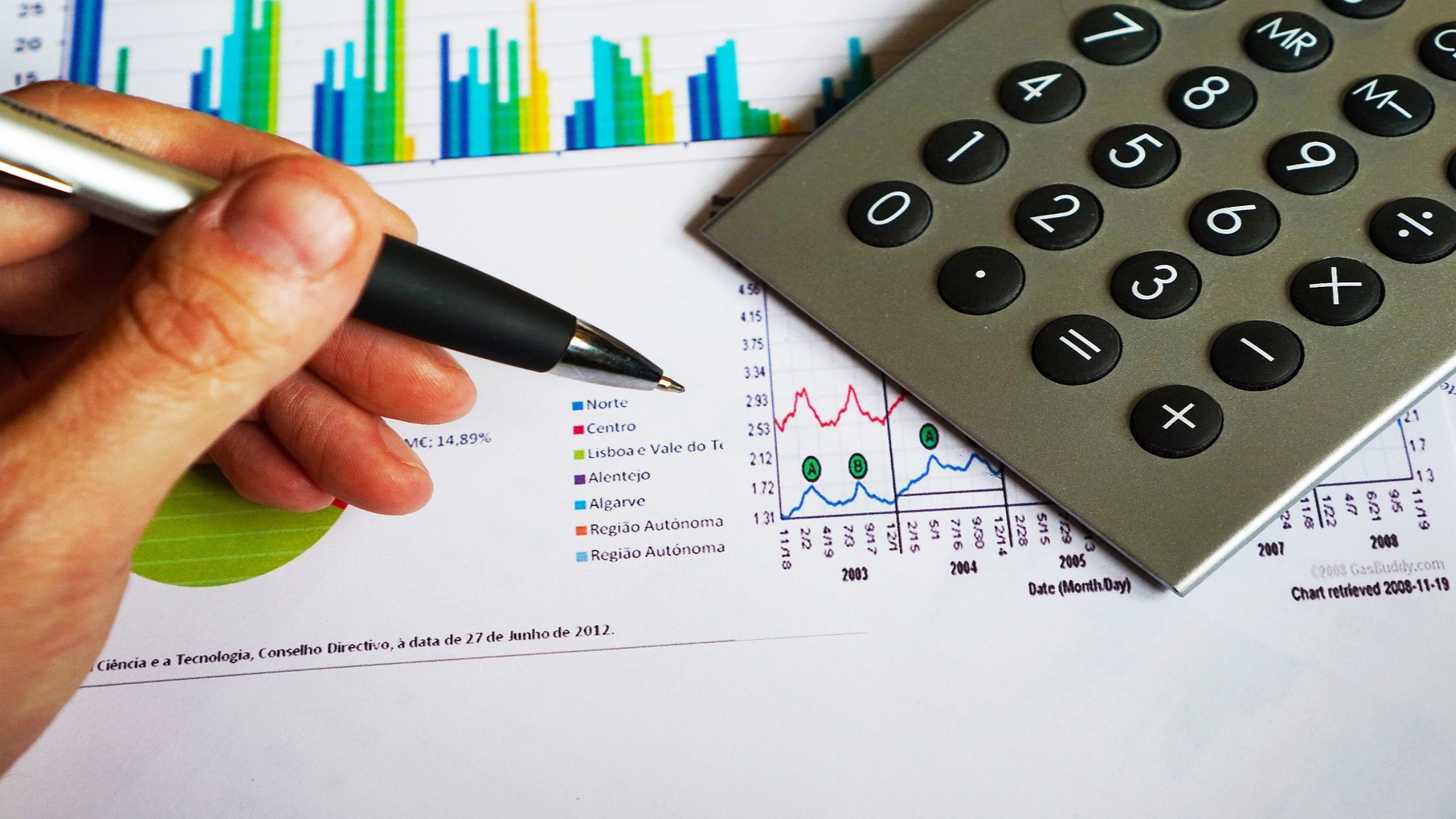Now it’s not just the amount you can set aside that matters. There are two other important elements that you should at least take into account in order to calculate how long it will take until you are financially independent. These are the return on your investments and inflation.
Efficiency
We have just talked about yield and the interest-on-interest effect. With the low interest rates on your savings, you don’t receive enough returns to make up for inflation alone, let alone ever call yourself financially independent. One of the easiest ways to achieve good returns against relatively little risk is by investing in index funds. After all, it is almost impossible to time the market properly (buy and sell at exactly the right time), even the most experienced investment fund managers cannot. The business calculator works perfect there.
Inflation
In addition, your monthly expenses also play a role in how much money you need to be financially independent. If your monthly expenses go up, your FI (financial independence) number will also go up. An important driver for this is inflation. In the European Union, the European Central Bank’s goal is to keep inflation at around 2%, which is optimal for the economy to grow but also to combat possible hyperinflation. Of course, inflation cannot be predicted with certainty.
Using long-term averages
Okay, so both return and inflation are variables that we should include in the calculation. Since the calculation has a long time horizon, it is wise to assume long-term averages.
For the return, the long-term returns of the equity markets are often considered. An example of this is the S&P 500 with an average annual return of 9.7% since 1928. Of course there are many ups and downs in this, the stock market is erratic and not without risk of loss. Still, if we look at the long term, we see an upward trend. Even taking into account that this includes a world war, the oil crises of the 1970s and the financial crisis of 2008, there is a positive average result. That is why I always recommend to only invest with money that you will no longer need (5+ years).
Because the ECB’s goal is to keep inflation below 2%, we can assume with reasonable certainty that your spending will increase by 2% every year. Hence, most models also assume an inflation rate of 2% when calculating the time to financial independence.
How long does it take to become financially independent?
Let’s already describe 2 extremes. If you spend your income in full every month and never save or invest anything, you will continue to work until your AOW / pension (assuming that there will be by then). On the other hand, if you somehow live completely free, and thus can save or invest your entire income, then you can already call yourself financially independent.
